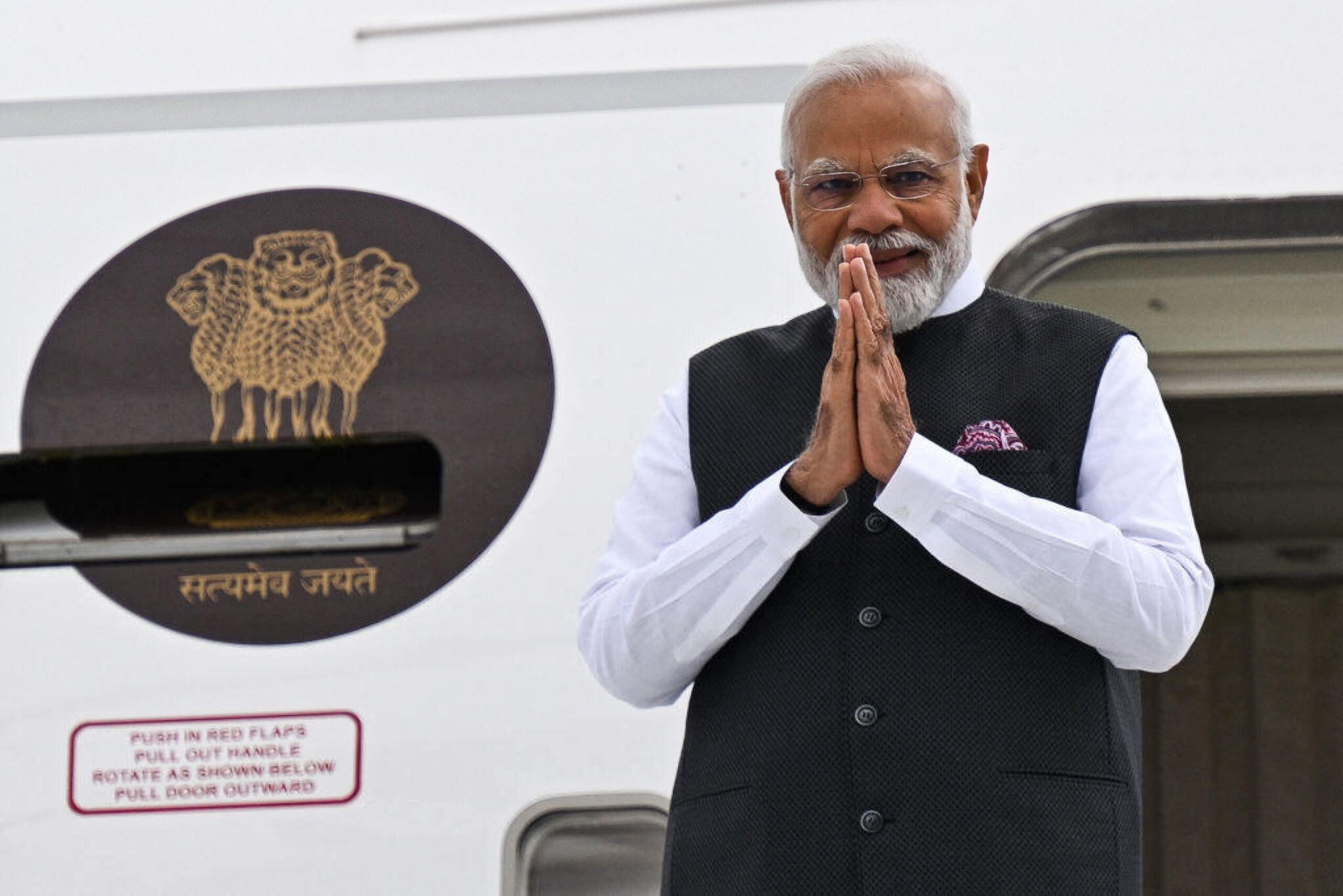Introduction
In the realm of global politics, Narendra Modi, India’s 14th and current Prime Minister, stands as a prominent figure known for his dynamic leadership and transformative policies. His journey from a humble background to the highest office in the world’s largest democracy is nothing short of inspirational. With a focus on economic reforms, international relations, and social initiatives, Narendra Modi has made a significant impact on India’s development. Let’s delve into the multifaceted persona of this influential leader and gain valuable insights into his leadership style and the impact he has had on India and the world.
Narendra Modi’s Early Life and Career
Narendra Modi, born on September 17, 1950, in Vadnagar, India, hails from a humble background, which has greatly influenced his political journey. His early involvement with the Rashtriya Swayamsevak Sangh (RSS), a Hindu nationalist political party, laid the foundation for his future endeavors in Indian politics. Serving as the Chief Minister of Gujarat from 2001 to 2014, Modi spearheaded numerous economic and social reforms, garnering both acclaim and censure for his distinctive leadership and governance style. This duality has undeniably solidified his position as a significant and controversial figure in Indian politics, shaping the country’s socio-political landscape.
The Political Journey of Narendra Modi
Narendra Modi’s ascent to the position of Prime Minister of India has been marked by a series of significant milestones. His early involvement with the Rashtriya Swayamsevak Sangh (RSS) laid the groundwork for his future in politics. After becoming the Chief Minister of Gujarat in 2001, his leadership during the aftermath of the 2002 Gujarat riots brought his governance style into the national spotlight. This attention ultimately led to his appointment as the Prime Minister of India in 2014, where he has since focused on driving economic growth and development through initiatives like ‘Make in India,’ ‘Swachh Bharat Abhiyan,’ and ‘Digital India.’
Modi’s Impact on India’s Economy
Narendra Modi’s tenure as Prime Minister has been characterized by a slew of transformative initiatives aimed at bolstering India’s economic landscape. His implementation of the Goods and Services Tax (GST) stands as a testament to his commitment to simplifying India’s tax structure and fostering economic efficiency. Furthermore, under his leadership, initiatives like ‘Make in India’ have been instrumental in propelling domestic manufacturing and enticing foreign investment. Notably, Modi’s government has zealously focused on infrastructure development, exemplified by the construction of highways and smart cities, to amplify connectivity and urbanization across the country. Additionally, the introduction of digital payment systems like UPI has played a pivotal role in steering India towards a cashless economy, reflecting Modi’s unwavering dedication to technological advancement and financial inclusion.
Narendra Modi’s Foreign Policy Initiatives
Under Narendra Modi’s leadership, India has bolstered its ‘Neighborhood First’ policy, prioritizing stronger diplomatic ties with neighboring countries to enhance regional stability and cooperation. Additionally, Modi’s ‘Act East’ policy has reinvigorated India’s engagement with Southeast Asia, emphasizing economic partnerships and strategic collaboration to boost India’s presence in the region. Moreover, the ‘Make in India’ initiative under Modi’s foreign policy aims to promote India as a global manufacturing hub by encouraging foreign investment and fostering a conducive business environment. Furthermore, Narendra Modi has actively pursued closer ties with major world powers like the United States, Russia, and European nations to diversify India’s international partnerships and strengthen its global standing, showcasing his commitment to bolstering India’s position on the world stage.
Challenges Faced by Narendra Modi as Prime Minister
Navigating India’s intricate political terrain to enact crucial reforms and policies stands as a formidable challenge for Narendra Modi as Prime Minister. Addressing the diverse needs of India’s vast population – encompassing differing languages, cultures, and socioeconomic backgrounds – poses another significant hurdle. Furthermore, managing diplomatic relationships with neighboring nations and global superpowers adds to the complexities of Modi’s role. Additionally, effectively managing issues pertaining to national security and defense amidst geopolitical tensions presents yet another formidable challenge for the Prime Minister.
Narendra Modi’s Leadership Style: Strategies and Vision for India
Narendra Modi’s leadership style is characterized by agile decision-making and proactive governance, playing a pivotal role in India’s progress and prosperity. Embracing a forward-looking approach, his vision for India centers on innovation, digitalization, and sustainable development. Modi’s strategies underscore a comprehensive focus on economic reforms, infrastructure development, and social welfare initiatives, aiming to uplift the lives of citizens across diverse sectors. His leadership resonates with confidence, empathy, and enthusiasm, captivating a broad audience both within India and on the global stage.
Modi’s Initiatives for Social Change: Empowering Communities in India
Narendra Modi has implemented various initiatives aimed at uplifting and empowering marginalized communities in India. One of the key initiatives is the ‘Swachh Bharat Abhiyan’ (Clean India Mission), which focuses on sanitation and cleanliness to improve public health and living conditions. This initiative has had a profound impact on the overall well-being of communities by addressing fundamental health concerns. Another impactful initiative is the ‘Beti Bachao, Beti Padhao’ (Save Daughters, Educate Daughters) campaign, aiming to address gender bias and promote education for girls. Through the ‘Make in India’ program, Modi seeks to boost domestic manufacturing and create employment opportunities, particularly benefiting rural communities. These initiatives underscore Modi’s commitment to fostering inclusive growth and development across all sectors of Indian society.
Frequently Asked Questions
Who is Narendra Modi?
Narendra Modi, the current Prime Minister of India, assumed office in May 2014 and has since been a prominent figure in Indian politics. As a member of the Bharatiya Janata Party (BJP) and the Rashtriya Swayamsevak Sangh (RSS), Modi has played a pivotal role in ushering in significant economic and social reforms in India. His influential initiatives include the implementation of the Goods and Services Tax (GST) and the notable demonetization effort. Widely recognized for his decisive and assertive leadership style, Modi is unwavering in his commitment to promoting India’s development and enhancing its global standing.
What is the public perception of Narendra Modi’s leadership?
Narendra Modi’s leadership style has garnered significant admiration for its strength and decisiveness, resonating with a broad audience. While many appreciate his efforts in advancing economic growth and development, some view him as a polarizing figure due to certain policies and political decisions. However, concerns have been raised by certain groups regarding religious tolerance and freedom of expression under his leadership. These contrasting perspectives reflect the complex and multifaceted nature of Narendra Modi’s impact as India’s Prime Minister.
What are Narendra Modi’s major achievements as India’s Prime Minister?
Narendra Modi’s impact on India’s economy has been profound, marked by significant reforms and initiatives aimed at enhancing the country’s economic landscape. His successful implementation of the Goods and Services Tax (GST) played a pivotal role in unifying India’s intricate tax structure, fostering a more conducive environment for business operations. Under his leadership, a substantial increase in the number of households gaining access to electricity has drastically improved the quality of life for millions of people across the nation. Furthermore, the initiation of the ‘Swachh Bharat Abhiyan’ reflects Modi’s commitment to achieving universal sanitation coverage and eradicating open defecation, addressing fundamental health concerns. Additionally, the ‘Make in India’ campaign, spearheaded by Modi, has been instrumental in promoting domestic manufacturing and positioning India as a prominent global manufacturing hub, underscoring his dedication to bolstering India’s economic prowess.
What is Narendra Modi’s background and political journey?
Narendra Modi’s journey commenced on September 17, 1950, in Vadnagar, India, where he was born into a family of grocers. His affiliation with the Rashtriya Swayamsevak Sangh (RSS), a Hindu nationalist political party, propelled him through the ranks, culminating in his appointment as the Chief Minister of Gujarat in 2001. Notably, his tenure as Chief Minister was characterized by pioneering economic and social development programs, cementing his image as a pro-business and astute administrator. Subsequently, in 2014, Narendra Modi steered the Bharatiya Janata Party (BJP) to an unprecedented triumph in the general elections, assuming the esteemed role of India’s Prime Minister.
How has Narendra Modi addressed economic challenges in India?
Narendra Modi’s tenure has been marked by a series of impactful economic reforms aimed at bolstering investment and streamlining the business environment in India. His introduction of initiatives such as ‘Make in India’ has not only propelled domestic manufacturing but has also enticed foreign investment, contributing to the nation’s economic growth. Furthermore, the government’s steadfast focus on infrastructure development, including the construction of highways, railways, and smart cities, has significantly stimulated economic progress and urbanization. Additionally, Modi’s commitment to financial inclusion is evident through initiatives like Jan Dhan Yojana, which endeavors to ensure access to banking services for all households, reflecting his dedication to promoting widespread financial empowerment.
Conclusion
In conclusion, Narendra Modi’s political journey and impact on India’s economy, as well as his foreign policy initiatives, highlight his proactive governance and dedication to steering India towards progress. Despite facing challenges in navigating India’s diverse landscape and managing diplomatic relationships, Modi’s agile decision-making and strategic vision for India have resonated with confidence and enthusiasm. Furthermore, his initiatives for social change underscore his commitment to empowering marginalized communities and fostering inclusive growth. As India’s Prime Minister, Modi continues to leave a lasting impact on the nation’s development and global standing.
Nexus Select Trust | MSM REITs | Warehouse Investment




